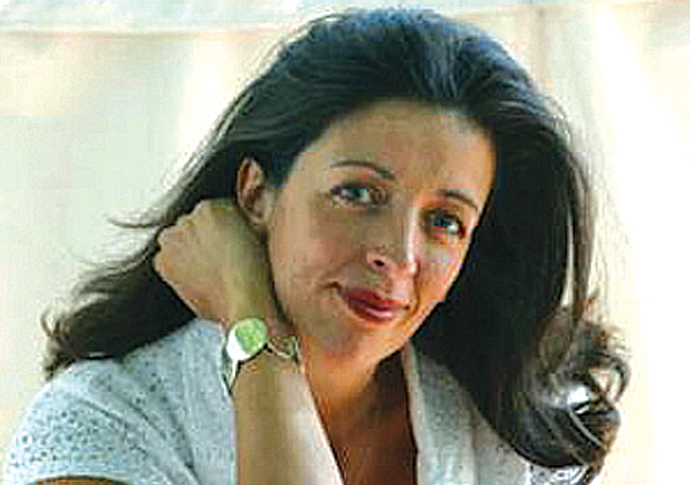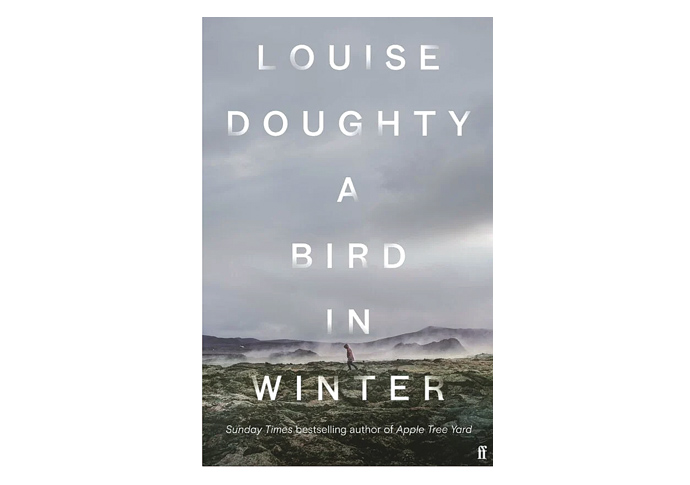Dark matter
Apple Tree Yard author Louise Doughty tells Charles Harris how her latest book came about and her regret at not contacting John le Carré
Thursday, 12th October 2023 — By Charles Harris

Louise Doughty, author of A Bird in Winter [Marc Melki-Opale]
SOMETHING has gone horribly wrong at the start of the new novel by bestselling Kentish Town author Louise Doughty. A Bird in Winter opens with Heather, a back-room worker for one of the espionage agencies, realising she has to go on the run. And quickly.
It was a tumultuously blustery day when I met Louise in the Renoir café in Kentish Town Road to talk about the new book. The weather seemed rather appropriate. All her novels appear to centre on characters whose emotions burst through in surprising ways. Is she like that in real life?
“Probably the opposite,” she says. “I’m with Flaubert, who said: ‘Be regular and orderly in your life, so that you may be violent and original in your work.’ Like any writer, I spend most of my time in a room, making up stories.”
Well, Louise is certainly original, moving from genre to genre in ways that run counter to the advice always given to authors. And she is not afraid to deal with violence, whether the violently passionate affair that sparks her biggest hit Apple Tree Yard or the gunfire that rakes a holiday resort in her BBC series Crossfire.
She’s entertaining company; obviously at ease, full of stories and anecdotes. But as for staying in her room, Bird involved her physically following the journey her heroine Heather takes, from Birmingham to the Orkneys, as well as Norway and Iceland.
She could be excused for staying at home. Her previous sortie into spy territory, Black Water was nominated for New York Times Notable Books of the Year, while her sixth novel, Whatever You Love, was shortlisted for a Costa and longlisted for the Orange Prize.
As we speak, she has heard that Crossfire has been shortlisted for two awards including Best New Scripted Series at MIPCOM, Cannes. But she feels nothing can replace the detail you learn from going to a place.
She says of Bird: “I had an image of a woman getting up from a meeting and going on the run. And I wanted it to end in Iceland. It was the middle 300 pages that I was missing!”
Nor did Louise make it easy on herself. “I knew straight away that if you go on the run in this country, you can’t take a car, because of automatic number plate recognition. So I did trains, buses, on foot, ferries…”

Those 300 pages involve an engaging slow-burn spy story, crossed with a road-movie through some of the most dramatic landscapes I’ve read, crossed with a moving account of a deep friendship. And it is this emotional underpinning of love and regret that gives the book its emotional punch.
She calls the novel “the love-child John le Carré might have had with Elena Ferrante”. Like Ferrante, Louise is one of those rare writers who delves into strong relationships between friends.
“It’s extraordinary how little they are dealt with. They’re such a big part of all our lives. The nuances of friendship.”
That said, there is sex and betrayal in the book, and Heather learns just what she is capable of.
No spoilers, but in the middle she has to do something very dark. “I think we’d possibly all be surprised at our own capacity to act when push came to shove.”
Given that she has now written two spy novels, albeit very different in approach, Louise regrets never having written to le Carré, who lived just up the road in Hampstead. Reading his breakthrough novel The Spy Who Came in from the Cold when she was 14 was a revelation.
“I remember that kind of visceral shock. You think, good Lord, if you’re a writer, you can control what people think, what people realise. How amazing that was. So I always intended to write to him about it, but I was too shy.”
She has produced an engrossing novel that powerfully echoes le Carré in its sense of the breakdown of moral codes and the failure of the sense of public service.
As someone says in Bird, the previous generation “betrayed their country out of conviction. Nowadays, people sell their soul for the price of a swimming pool.”
And yes, if you detect a nod towards modern politics, it’s deliberate. She deplores the collapse of a structure that believed in serving the public. “Easy to destroy and much harder to rebuild.” She doesn’t pretend to know the answer, though she believes a good press and local newspapers will be a crucial part.
What’s next? She’s toying with an idea, part set in Amsterdam under the Nazis and part in Weymouth during the Cold War “if that doesn’t sound too odd”. It’s still in embryo, but one thing is certain. It will involve more than just sitting in a room.
• A Bird in Winter. By Louise Doughty. Faber & Faber, £16.99